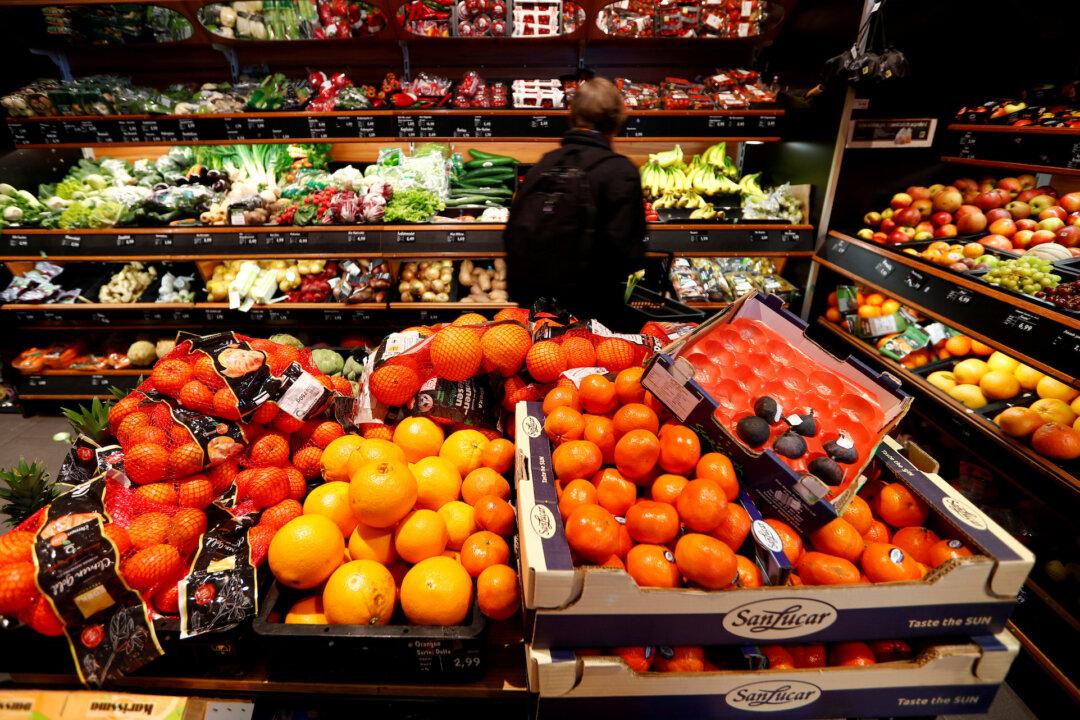Inflation in the 19 countries that share the euro currency jumped to a record high in May, largely on the back of soaring food and energy prices, which could climb higher still on the back of the E.U.’s new pledge to ban most Russian oil imports.
Eurostat, the E.U.’s statistical agency, said in a May 31 estimate (pdf) that the annual pace of inflation in the euro area rose from April’s 7.4 percent to 8.1 percent in May, a record high.





